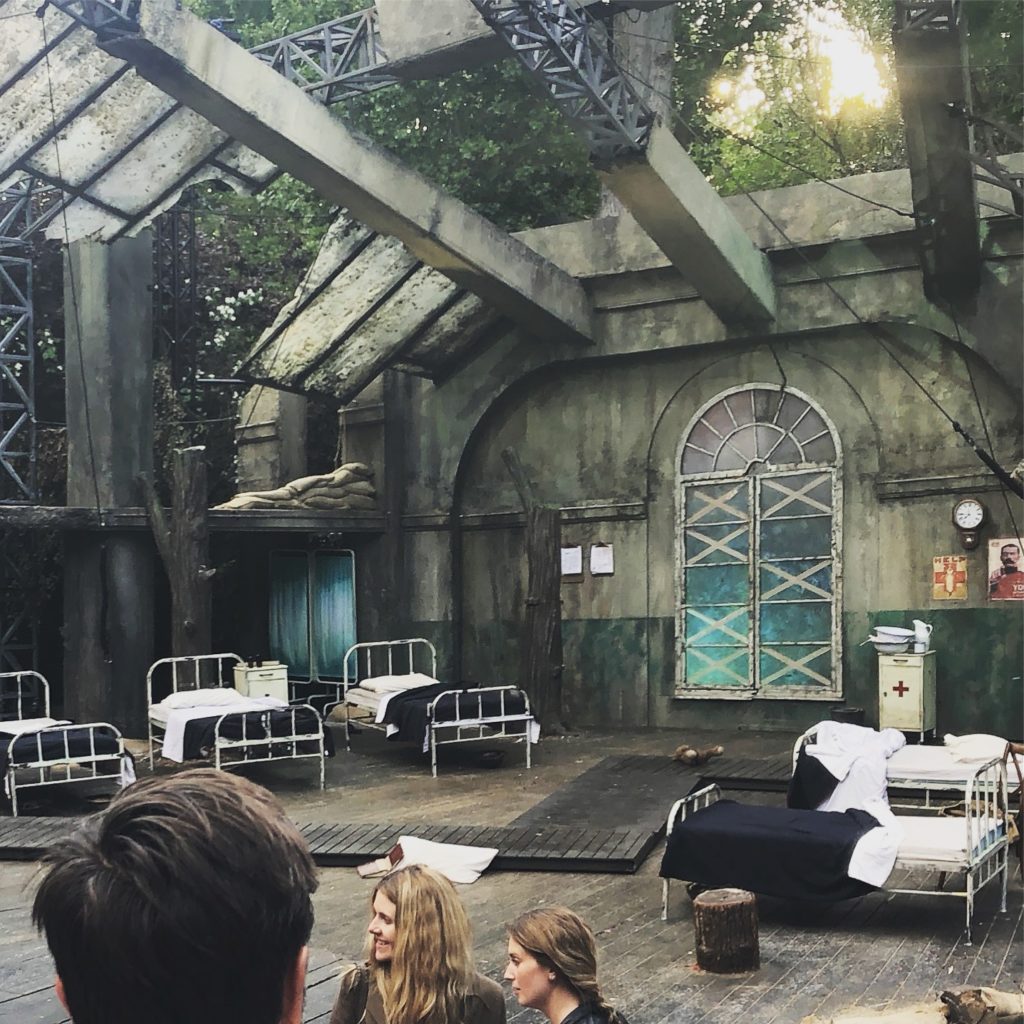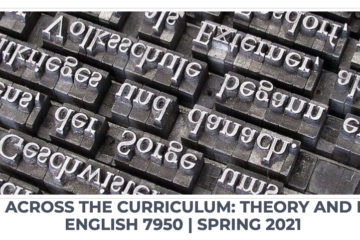”To die would be an awfully big adventure!”
Peter Pan offers this classic line when he’s stuck on Marooner’s Rock, having been injured by Hook. Later, when Hogan remade a version of Peter Pan as a film, he introduced the line, “To live will be an awfully big adventure!” While I think the line silly, I understood why Hogan and others would want to engage the idea of life, particularly if it means that we can escape the tragedy at the heart of Peter Pan: that remaining a child, as Peter does, is the failure of life; it’s a refusal to grow up, to connect with others, to love and to be hurt, as well, of course, but still to love — or try to.

The joy of seeing Timothy Sheader and Liam Steel’s Peter Pan at Regent’s Open Air Theatre last night was in seeing a production that seemed fully to understand that the play (and the novel that followed in 1911) was fundamentally a tragedy, that it was not remotely the light-hearted romp through childhood that it has pretended at, or perhaps that viewers have pretended it to be. Though there have been many interpretations, this production is the first I know of to frame the play (left mostly in-tact, though they completely omitted the extremely racist representation of Native American people that has made the play difficult to keep staging) with a new-written opening and closing scene set during World War I in the Somme. The play opens on an army hospital, where the boys who had been sold that famous line “dulce et decorum est” have ended up blinded and broken by the realities of the battlefield. Nurses work hard to support these young men in their care, and one nurse begins to read excerpts from the novel Peter Pan to the boys to help them feel not quite so lost and alone.
As the soldiers fall asleep to Wendy’s reading of the novel, we get our first look at Peter Pan through the window, and the world of the play crashes into the world of the Western Front. After Wendy and Peter meet — and Peter seduces Wendy to come to the Neverland to look after those lost boys — Wendy shakes John and Michael awake; they pull off their eye bandages, which they wore on stage as soldat blasé, and are become children who are eager to follow the piper-call of Peter Pan to a new land of adventure. Then, the beds and set give way to offer us our trip to the Neverland.
I’m not all that interested in the quality of the acting — it was mostly passable, in my mind, particularly Sam Angell’s Peter, who never seemed to understand for sure who or what he was meant to be in this production, though there were a few stand-out performances — but in framing this story through the lens of World War I, Sheader and Steel offer a telling look of how hard it was, and thus how essential it was, to maintain the myth of Victorian and Edwardian childhood that Peter Pan had helped establish. After the Great War, who could imagine a world where childhood could be so innocent, so angelic, so conspicuously unreal as the middle-class childhood that the Victorians had worked so hard to create? Of course, childhood has never been that thing, but part of the power of this image of childhood is that it is immensely sell-able as an antidote to our modern (and modernist) awarenesses of war and the global violences carried out each day in the name of free-market capitalism.
In large part, the soundtrack for the production, drawn from the beautiful and anxious songs of the First World War, reinforces this tragedy of texts that endlessly encourage young men to think it is “sweet and fitting to die for one’s country.” The boys march in at the start to several tunes, the most recognizable being “It’s a Long Way to Tipperary,” which ends up being part of a round sung among other songs of childhood. The second half starts with Mrs. Darling singing to us to “Keep the Home Fires Burning,” but in such a mournful way that we understand it as both the character’s missing her children and the way that so many mothers (and fathers) must have missed their own 17, 18, and 19 year olds off in a Flanders field:
And we gave our glorious laddies
Honor made us do no less
For no gallant Son of Freedom
To a tyrant’s yoke should bend
And a noble heart must answer
To the sacred call of “Friend!”
Intersecting with these songs of boys who are gone and may not return is our own awareness as the audience that our children never return, that they grow up and leave us, and that they never come back as those children we will no doubt miss. As parents, as adults, we know they are growing into something wonderful and horrible and beautiful and tragic, but if you think of childhood as inherently better than adulthood, as more pure or honest or true or whatever other framework you create in order to memorialize a fake notion of childhood, then I suppose growing up is a tragedy — it’s going into a war where there are no rules and no right, where justice doesn’t always or ever control what’s going on. I get that. Part of what I think is so powerful about this particular vision for a production of Peter Pan is that its asks the audience to question its assumptions about childhood innocence while asking why only certain childhoods get to be preserved, why only certain childhoods are worth memorializing, why only certain childhoods enjoy the freedoms that we pretend are inherent to childhood-writ-large. And it asks us what we will do to stop the injustices that make adulthood equally as terrifying as children being slaughtered by the terrible soldiers of other wars.
At the end of this production, which never really introduces us to Mr. and Mrs. Darling, and doesn’t even have an actor playing the role of Mr. Darling, the three women nurses are back to celebrate the armistice and to bid the boys farewell. They drink a tot of scotch, and they recognize that these boys who did survive the war would never have done so without their intervention, without their willingness to go into the battle as well and be strong in a world that still thinks of women as “the weaker sex.” Like the scene before, where the soldier boys reflect on the ways that the war was not kind to every veteran — the black soldier who wasn’t welcomed home to “Mother England” after the war or invited to participate in memorials for years, the gay soldiers who loved each other and lost each other when they returned to a world where they could not be together — the nurses remind us that there is much about growing up that still doesn’t work, that still stops us from being ourselves and being valued for the beautiful contributions we bring. The same cultures that memorialize and embrace an empty vision of childhood embrace very limited visions of adults — growing up isn’t freedom to be ourselves or to live as we please, but to be endlessly buffetted by a series of battles that we also do not control or know the parameters of.
As the boys told their stories of “coming home” and not finding the same window left open, from the same mothers who had sent them off to war, I felt a very different sort of compassion for Peter Pan than I had felt in other productions. In the original play, it’s easy to see Peter Pan as whiny, as a petulant child who wants what he wants when he wants it and who refuses to accept the responsibilities of growing up. In this production, I was reminded how much, like Elliott, we all eventually come “home” to find ourselves “no longer at ease in the old dispensation.” The question remains how we come home: do we run away to the Neverland like Peter or do we figure out what it means that the windows we wanted to return to are closed to us, that the homefires we thought were burning are gone cold — and what does it mean when we realize, like Wolfe, that we really can’t go home again at all?
In the original play and novel, Peter tells us that when he went home, his mother had closed the window, so he escaped to the Neverland forever because of the sting of this rejection. Sheader and Steel ask us to think a bit about Peter’s mother — and by extension, all those mothers who have lost their sons and daughters wars both foreign and domestic — and to imagine what we’re willing to do to stop this happening.


